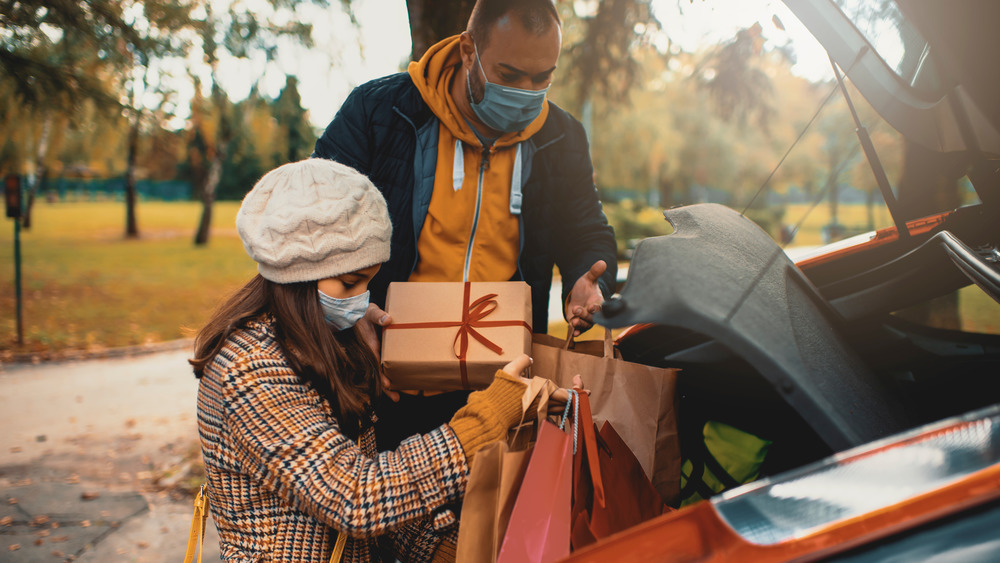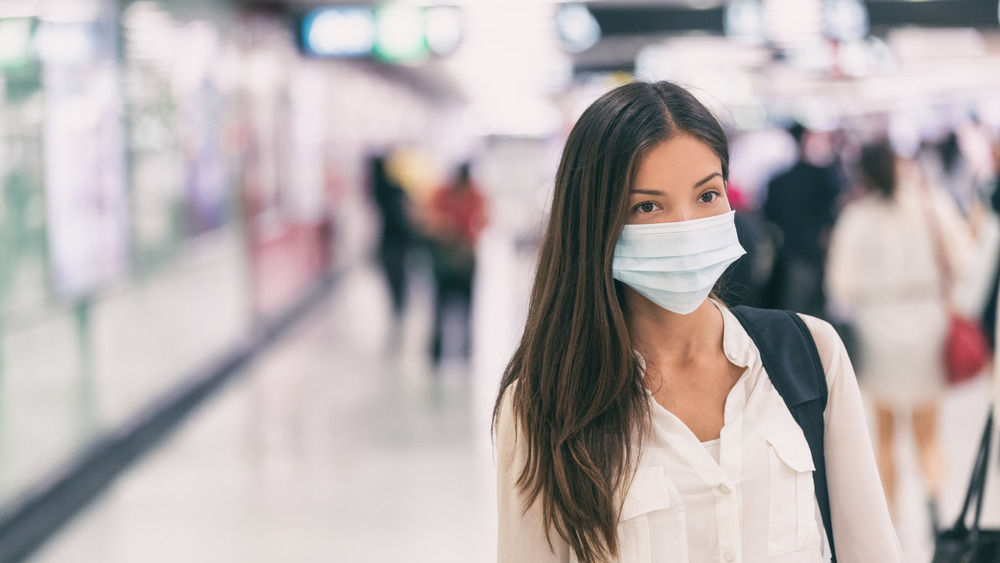If You Traveled For Christmas, Here's How To Reduce Your COVID-19 Risk
There is no denying that this holiday season was unlike any other in recent history. Despite the Centers for Disease Control and Prevention's recommendation to postpone travel during this holiday season and urging people to stay home, approximately 1.3 million people traveled recently by plane, according to the Transportation Security Administration (via CNN). That's not taking into account the people who traveled by train, bus, car or other means to spend Christmas with their family and friends.
The increase in travel comes as the United States is setting records for the number of COVID-19 cases and deaths per day. This past Sunday in Los Angeles, now the epicenter of the pandemic, the Los Angeles County-USC Medical Center had to turn away ambulances for 12 hours due to the lack of hospital and ICU beds (via KTLA 5). If you're one of the millions of Americans who traveled last week for Christmas, there are a few things you should do now to help reduce your risk of developing and/or spreading COVID-19.
The CDC has issued guidance for all persons who have traveled recently for the holidays. For two weeks, they recommend everyone wear a mask while in public and maintain six feet distance from individuals outside of their direct household. If there are individuals within the house who have not traveled, they recommend everyone in the household wear a mask for 14 days.
Additional post-holiday travel COVID guidance
The CDC is also urging all individuals, even with no symptoms, to consider getting a COVID-19 test three to five days after their return and to reduce "non-essential activities" for one week. If people are unable to get tested, then they recommend reducing non-essential activities for 10 days. If your COVID test comes back positive, then it is necessary to isolate yourself to prevent disease transmission to others.
Dr. Leana Wen, an emergency medicine physician, told CNN that, "People should keep in mind the concept of cumulative risk, that risk is additive: The more high-risk activities you participate in, the greater your likelihood of contracting Covid-19 (and, if you are an asymptomatic carrier, to inadvertently infect other people)." With New Year's Eve just a few days away, she goes on to stress that just because you may have come out of Christmas scot-free — and really it's still too early to tell definitively — you shouldn't view that as a false sense of security.
Dr. Wen agrees with the CDC's guidance for people who have traveled. She goes on to say, "Hospitals are the last line of defense. The community is the first line of defense. Quarantine and testing after a high-risk exposure is the best thing you can do to prevent further overburdening our health care system."
So if you've spent time this past week traveling or plan on traveling for the New Year, be sure to act responsibly and follow national and local public health guidance to help protect all of our loved ones.


